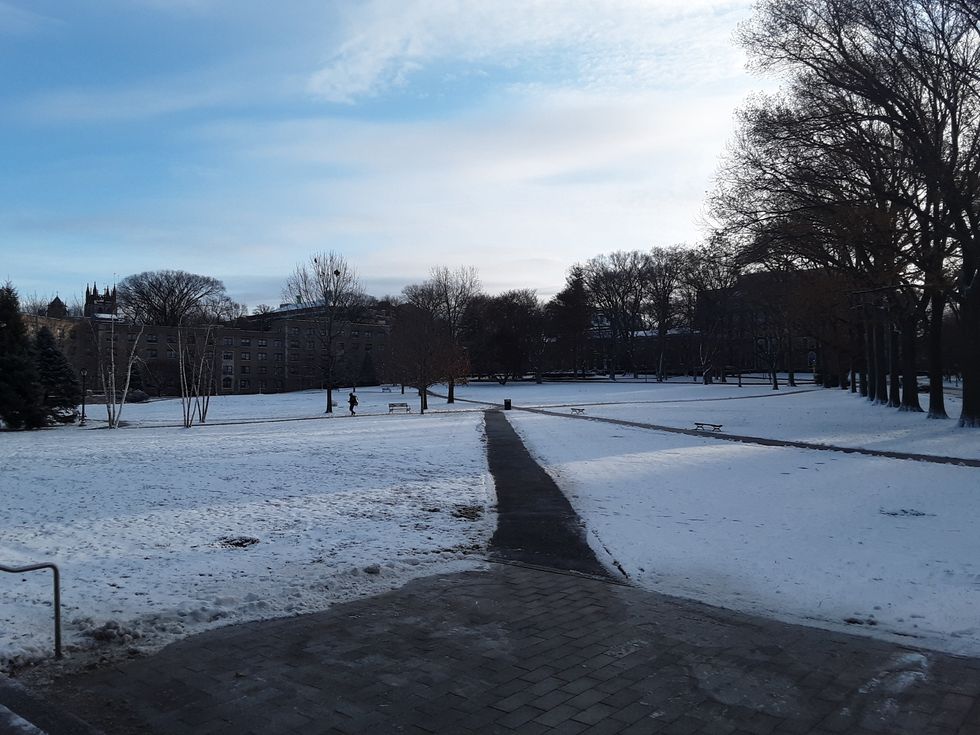In one of my classes, I recently read a great poem by Wallace Stevens called "The Snow Man." We generally associate snowmen and winter (at least the beginning of winter) with Christmas, with our efforts to fill a desolate time of the year with warmth. The Stevens poem, though, is full of nothingness: in it, winter is a presence of absence. It makes for a great poem, and an odd one.
I came back from Thanksgiving break on the Amtrak this past Sunday, and it was snowing when I left South Station in Boston. It was still mostly just rain in NYC, but after that, it snowed enough to give Fordham's campus a nice coating of snow. My train trip to Fordham pretty handily represented a transition: a transition to the final segment of the fall semester of my senior year (which will notably include this weekend's Festival of Lessons and Carols). My train trip happened to occur on the First Sunday of Advent, the beginning of a new church year, which happened to also be the first day of December. And on the night of December 31st, the world will greet a new decade.
John Keats wrote a famous poem called "When I Have Fears That I May Cease to Be." It's not entirely without reason that our generation feels a tremendous amount of anxiety when it comes to being the first group of adults to come of age in a new millennium. I certainly do sometimes, and, when I do, the future seems like a vast wasteland. I'm then reminded, nevertheless, that the greatest poem of the last century is called "The Waste Land", and if it's a desolate poem, it's also a very beautiful one. The Stevens poem reminds us of how interesting it is that we glorify winter so much, even when it's the most empty of seasons. Well, I say that the future is frightening in its potentiality; it's also exciting. As I continue my senior year, I hope to tap into that beautiful emptiness.












